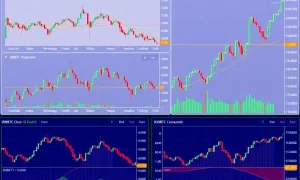The Ethereum Foundation’s recent 10,000 ETH sale worth $43 million has sent ripples through cryptocurrency markets, raising crucial questions about strategic Ethereum liquidity management and its profound implications for investors navigating the volatile digital asset landscape in 2025.
Understanding Ethereum Liquidity Strategy
The Foundation implemented a carefully structured Ethereum liquidity approach through staggered sales on centralized exchanges. This method aimed to minimize market disruption while maintaining essential fiat reserves. The transparent announcement beforehand prevented information shock, demonstrating sophisticated treasury management practices.
Market Impact and Price Dynamics
Despite concerns, the Ethereum liquidity event showed minimal price disruption due to strong institutional absorption capacity. Key factors influencing market response included:
- Institutional demand absorbing 403,800 ETH monthly
- Critical $4,500 support level maintenance
- Staking yields creating supply vacuum effects
- Layer 2 scalability reducing transaction costs
Institutional Adoption Trends
Ethereum liquidity strategies increasingly attract institutional interest following regulatory clarity. The CLARITY/GENIUS Acts reclassification unlocked $43.7 billion in staked assets, while ETF inflows reached $33 billion. These developments position Ethereum as a hybrid yield-generating asset rather than purely speculative investment.
Technical Infrastructure Developments
The Dencun and Pectra upgrades significantly enhanced Ethereum liquidity mechanisms by reducing gas fees by 90%. Layer 2 networks now handle 60% of transactions, driving Total Value Locked (TVL) to $45 billion across DeFi and real-world asset tokenization projects.
Investor Considerations and Risk Management
Successful Ethereum liquidity navigation requires monitoring several critical indicators. Investors should track staking rates, ETF flow patterns, and regulatory developments. The Foundation’s sale demonstrates professional treasury management but underscores need for diversified portfolio strategies in volatile markets.
Future Outlook and Projections
Analysts project staking rates could exceed 40% of total Ethereum supply by 2026, further tightening liquidity conditions. This structural shift, combined with ongoing infrastructure improvements, suggests Ethereum’s transition from speculative asset to foundational financial infrastructure will continue accelerating.
Frequently Asked Questions
Why did the Ethereum Foundation sell 10,000 ETH?
The sale funds research, development, grants, and charitable activities while maintaining balanced fiat reserves as part of established treasury management policy.
How does this affect Ethereum’s price stability?
The staggered sales approach minimized volatility, with strong institutional demand absorbing the additional supply without significant price disruption.
What are liquid staking derivatives?
LSDs allow users to stake ETH while retaining tradable tokens, enhancing overall market liquidity and providing flexible investment options.
How does regulatory classification impact Ethereum?
Utility token classification under recent legislation reduces legal uncertainty and facilitates institutional adoption through clearer compliance frameworks.
What percentage of ETH supply is currently staked?
Approximately 30% of Ethereum’s total supply is currently staked, creating structural supply constraints that affect market liquidity dynamics.
How do Layer 2 solutions improve Ethereum liquidity?
Layer 2 networks reduce transaction costs by 90% and increase throughput capacity, enabling more efficient capital movement and enhanced liquidity provision.








